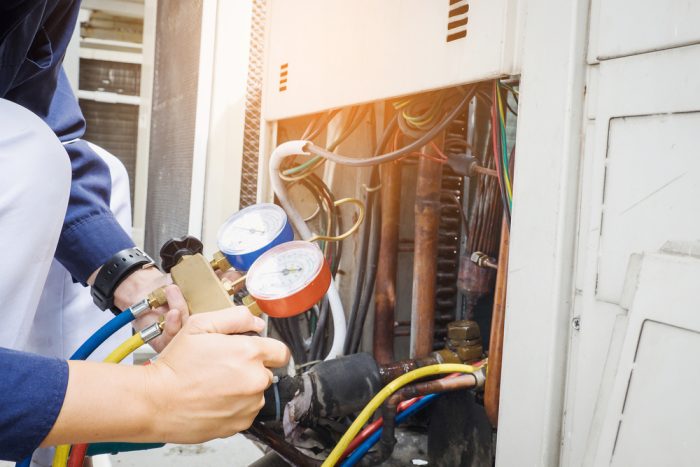No products in the cart.
Work From Home
How to Save Money on Your Office Air-Conditioning Bill
Home Business Magazine Online
There’s nothing as refreshing as blasting the air-conditioning in a stuffy office. There’s also nothing as painful as getting your office energy bill at the end of the month and realizing a hefty sum running your heating, ventilation, and air-conditioning (HVAC) systems was spent. This is a common problem, especially with older HVAC systems built to be less efficient than new ones.
Fortunately, there are several ways to save money on your energy bills by making simple adjustments to your HVAC system:
1. Install an HVAC System with a High SEER Rating
the air conditioning SEER rating measures cooling efficiency. It’s short for seasonal energy efficiency ratio, which compares the amount of heat extracted by an air conditioner to the same amount of heat by the compressor. It ultimately tells you how much electricity your system predicts to use. So, it’s a good idea to look for models with high SEER ratings when shopping around.
The higher a unit’s SEER rating, the more efficient it is, and this means lower office energy bills over time. In terms of cost savings, upgrading from a 13 SEER to an 18 SEER system saves you as much as USD$220 on cooling costs per year.
2. Consider Upgrading or Replacing Your Old HVAC System
One of the most effective ways to save money on your office air-conditioning bill is to consider upgrading or replacing your old HVAC system. Upgrading improves energy efficiency by up to 60% and reduces energy costs by 40%. It often also means noise reduction occurs, which in turn increases comfort and productivity. Finally, upgrading lengthens the life span of your equipment, leading to lower maintenance costs in the long run.
In addition to these benefits, modern HVAC systems are also more efficient than older models at providing temperature control for different zones within a building. Zoned control allows you to set different temperatures for various areas so that you don’t waste energy cooling unoccupied rooms or overheating occupied ones (which also leads to higher air-conditioning costs).
3. Change the Filters and Clean Your Ductwork Regularly
The most crucial step in minimizing the energy used to cool your building is to ensure you have the right size and quantity of filters. The wrong filter leads to poor airflow, which causes your system to work harder than it needs to. If you are unsure of the size and quantity of filters that work best for your office, consult with someone who knows how an air-conditioning system works. It is also essential to change them regularly (at least once a month) to save on your office energy bill.
If you want to save even more on cooling costs by keeping those ducts clean, get down on all fours (or use a ladder if needed) and give them a good washdown every three months. If there is any chance that water could get into any part of the cooling system, such as through vents or coils, don’t use bleach or other harsh chemicals because they damage those components eventually. the truth is preventive maintenance is crucial in reducing the cost of an office HVAC system.
4. Be Sure to Schedule Regular Maintenance Visits Each Year
Having an annual inspection of your HVAC system is the best way to ensure it’s working correctly. Besides keeping your equipment running smoothly and efficiently, routine maintenance also helps you avoid costly repairs down the road. With a regular professional check of your system (generally between six months and one year), any potential issues are identified before they become significant problems. This helps prevent expensive breakdowns, which could otherwise cause an emergency. This may include leaving you without an air-conditioning system during work hours or, even worse, without heat during the winter months.
5. Install a programmable thermostat
A programmable thermostat is an excellent way to save money on your office air-conditioning bill. When set to adjust the temperature at certain times of the day, a programmable thermostat helps you save up to 10% on heating and cooling costs. Do this when the office is unoccupied because your employees went home, or during weekends or holidays. Some models even allow you to set a schedule for multiple days so that your building is at its most energy-efficient setting when it needs it most.
Conclusion
Saving money is always a goal for business owners. By optimizing your HVAC system and changing how you use it, you can reduce your office energy bill significantly. You also save on repairs by maintaining your equipment regularly. Therefore, do not hesitate to implement the strategies discussed here and see how much savings you manage after.
the post How to Save Money on Your Office Air-Conditioning Bill appeared first on Home Business Magazine.

